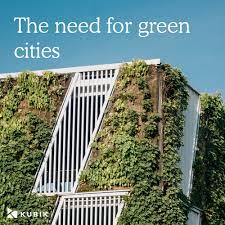Ethiopian startup Kubik has received $3.34M in funding in a seed investment round. The company repurposes difficult-to-recycle plastic waste into cost-effective and low-carbon building supplies. Importantly, the firm will use the funds to scale its operations across Ethiopia. Moreover, the entity targets to contribute to the proliferation of accessible housing solutions in Africa.
The $3.34 million funding was raised from a number of investors, including Plug and Play, Bestseller Foundation, GIIG Africa Fund, Satgana, Unruly Capital, Savannah Fund, African Renaissance Partners, Kazana Fund, Princeton Alumni Angels and Andav Capital.
Kubik’s groundbreaking building materials have reaped considerable attention in the market, driving the interest of customers and investors. Kubik products cost at least 40% less per square metre and have chemical properties that make them safe, non-flammable and non-degradable. Additionally, these products are low-carbon, with greenhouse gas (GHG) emissions at least five times lower than those of cement-based products.
Also Read: Ethiopia construction sector expanding with ELKON
Upon completion, the firm will increase its production of sustainable and affordable bricks, columns, beams and jambs from used plastics.
Significance of the Kubik Firm to the East African Economy
Initially, the young start-up will double its production of construction materials in Ethiopia, by the end of 2023. Later on, it will extend its approach to other African countries, including Kenya.
Achieving this objective will also require an increase in the amount of plastic waste recovered by Kubik. Currently, the entity is estimated at 45,000 kg per day or 4% of the plastic waste produced on the continent.
Kubik has the potential to supply its eco-friendly materials for the construction of more than a quarter of a million square metres. This is the capacity of wall surfaces every year in Africa and around the world. “We’re just getting started,” says Kidus Asfaw, CEO of the start-up, which has already won the FIC 2023 Start-up Award.

